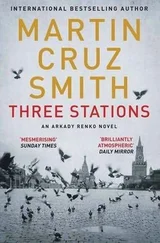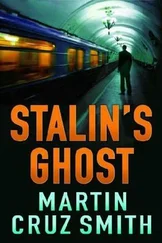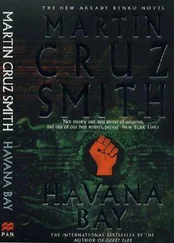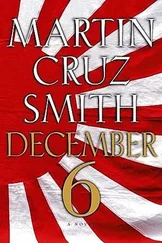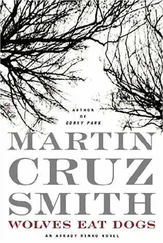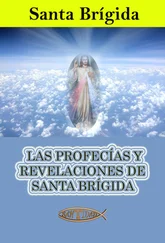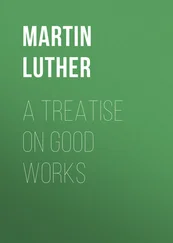Martin Smith - Stallion Gate
Здесь есть возможность читать онлайн «Martin Smith - Stallion Gate» весь текст электронной книги совершенно бесплатно (целиком полную версию без сокращений). В некоторых случаях можно слушать аудио, скачать через торрент в формате fb2 и присутствует краткое содержание. Жанр: Триллер, на английском языке. Описание произведения, (предисловие) а так же отзывы посетителей доступны на портале библиотеки ЛибКат.
- Название:Stallion Gate
- Автор:
- Жанр:
- Год:неизвестен
- ISBN:нет данных
- Рейтинг книги:4 / 5. Голосов: 1
-
Избранное:Добавить в избранное
- Отзывы:
-
Ваша оценка:
- 80
- 1
- 2
- 3
- 4
- 5
Stallion Gate: краткое содержание, описание и аннотация
Предлагаем к чтению аннотацию, описание, краткое содержание или предисловие (зависит от того, что написал сам автор книги «Stallion Gate»). Если вы не нашли необходимую информацию о книге — напишите в комментариях, мы постараемся отыскать её.
Stallion Gate — читать онлайн бесплатно полную книгу (весь текст) целиком
Ниже представлен текст книги, разбитый по страницам. Система сохранения места последней прочитанной страницы, позволяет с удобством читать онлайн бесплатно книгу «Stallion Gate», без необходимости каждый раз заново искать на чём Вы остановились. Поставьте закладку, и сможете в любой момент перейти на страницу, на которой закончили чтение.
Интервал:
Закладка:
"Did you see any more of the doctor who got you out?"
"He seduced me. A lot of men seduced me in the beginning."
"Communists?"
"Who knows? The world is full of communists. In Germany, the only ones who stood up to the Nazis were communists."
"And Oppy?"
"What do you mean?"
"How did you run into Oppy again?"
"In New York. He needed a mathematician. He was rounding up refugees like stray cats. He used to have long brown curls, you know. He cropped his hair, like Joan of Arc, to go to war. Yes, like Joan of Arc! First he asked if I wanted to see my numbers come to life, then he invited me to the project."
"He's a seducer."
"Yes. Do you know what my work is? I turn my equations into programs for an electronic computer. I turn each millionth of a second of an imaginary Trinity into a deck of punchcards so that we can estimate what will happen in the real Trinity. You see, everyone else is working to Trinity. Oppy inspires everyone to work so hard."
"There wouldn't be a bomb without Oppy."
Anna refilled his glass and her own.
"There wouldn't be an Oppy without the bomb. There are other physicists here more brilliant by far."
"Come on. Harvey starts a sentence and Oppy finishes it for him."
"He's quick to finish other people's thoughts. But they're still other people's thoughts. What I meant to say, though, is that no one looks ahead to after the bomb is used. Or asks whether the bomb should be used or, at least, demonstrated to the Japanese first. Because they haven't reached the event of Trinity itself, they don't think of the consequences. On the punchcards are not only the fireball, the shock wave, the radiation, but also an imaginary city. So many structures of steel, of wood, of concrete. Houses shatter under shocks of one-tenth to one-fifth of an atmosphere. For steel buildings the duration of the shock is important. If the pulse lasts several vibration seconds, peak pressure is the important quantity. I can stop the blast at any point. I can go backwards or forwards. Nobody else sees it. It's as if they can't imagine a shadow until the sun is up. I see it every day. Every day I kill these thousands and thousands of imaginary people. The only way to do it is to be positive they are purely imaginary, simply numbers. Unfortunately, this reinforces a new fantasy of mine. There are times when I feel as if I am one of those numbers in one of the columns on one of the punchcards flying through the machine. I feel myself fading away."
"To where?"
"To Germany. Freud was right, after all. It is difficult to be a refugee once you think you are dead."
Joe pulled a crate from under the bed and took out a wadded ball of newspaper.
He unwrapped the newspaper at the table and set down by the lamp a small, gleaming black pot with a tiny top hole. "It's a seed pot. It's the last pot I have of my mother's."
"It's beautiful."
"I was supposed to sell it with the rest, but I couldn't. I wanted to have something of hers."
"It's a work of art."
"Like a little, smooth earth. Nice, huh?" He let Anna admire the pot for a second more, than blew out the lamp flame. He stepped back across the room.
"What are you doing?"
"I'm going to throw you a pot."
"I can't see."
"I can't see you, either. This could be interesting."
"I can't -"
"Catch!"
Joe tossed the pot lightly, underhand. It rolled from his fingertips into the dark. A last, faint nimbus of moonlight clung to the open window. Joe watched the pot tumble past the dim glow and disappear into the darkness on the other side. He waited for an explosion of clay. There was a sharp intake of breath from the other side, no other sound.
He stepped gently across the floor, reached into the dark and found her hands. Anna had caught the pot as it passed her ear and she still held it there tightly, off-balance. When Joe had first pulled out the crate, he hadn't know what he was going to do. An impulse was there, the start of an arc, the opportunity to risk all.
Anna was shaking.
"That was crazy."
"Maybe. But we proved you're here." He moved his hand from hers, down to her necklace and shirt and the weight and heat of her breast, where he felt the accelerated rhythm of her heart. "And alive."
The nimbus at the window became brighter and harder. For a moment Joe thought perhaps the moon had turned back, pulled by the pot's dark flight, a vying gravity. If he could raise the dead, he could raise the mountains and affect celestial bodies. The nimbus became a beam of light gently probing the dim outlines of lamp, table, chair, then a white shaft that poured through the window and filled the room. A car engine idled outside. It must have rolled in neutral on its own momentum all the way from the road behind the Reyes' yard.
"Who is it?" Anna asked.
Joe set the pot on the table. He cracked the door to look out, but the headlights were too bright and whoever was in the car wasn't getting out. "Can't see," Joe said.
He slipped his .45 from its holster and tucked the gun into his trousers, then crouched below the light and pulled Anna to the kitchen. Through the shutters over the sink he had a view of his jeep parked by the side of the house, of a corn field, the stalks standing in ranks, and of the Reyes' yard. There was no more smoke in the yard. He remembered Sophie's nightmare and deciphered it. Sophie said she'd seen a devil with yellow skin and a rifle. The silver horns were captain's bars and the devil was Augustino. Joe didn't know why the captain had come, but his own mind was decided. He eased open the casement window.
"Why not wait to find out?" Anna whispered.
"Because I think I know."
Joe went through the window head first, rolling between the jeep and the wall of the house. There were no more cars, no footsteps, but Augustino was capable of coming alone. Joe rose, his back sliding against the corner of the wall. He freed the .45 from his belt, cocked it, thumbed off the safety. As the night wind brushed over the field, rows of corn dipped and rustled. Dogs were quiet. He heard nothing in the corral, nothing on the roof. Only the deep, powerful count of his heart.
In one long step he swung round the corner of the house and through the headlights, and stuck the .45 in the face of the driver, a coloured man wearing a tuxedo. The car was a Cadillac.
"Joe?" Pollack asked. His eyes opened so wide and white they seemed to ooze. "Joe, don't you shoot your bestest friend. Don't do it."
Joe let the gun drop and hang.
"What the hell are you doing here at this hour?"
"Leaving you a note." Fountain pen and paper were still frozen in Pollack's spidery black hands. "How else can I get into communication with you working on the Hill? I can't reach you there. All I can do is leave a note."
"At this hour?"
"I didn't know you'd be here. You were supposed to come by the Casa Mariana last weekend and sign those papers."
It was the night Joe had gone to the hot springs with Anna and Harvey.
"I got sidetracked, sorry. You have the papers, I'll sign them right now, right here."
"I have them," Pollack said, although he made no move to produce them now that he'd regained his composure. "Know what the buyers want to do? They want to tear down the club and build garden apartments. They have the money."
"That's what counts."
Pollack sighed.
"A sad end for the Casa Mariana."
"You'll have a new club in New York."
"But it will be one of many good clubs in New York. There was only one good club in New Mexico. It was the best, right?"
"The best. You've got the papers?"
"The only authentic jazz in New Mexico. Even if I was gone, it would be like a last laugh."
"You want me to sign or not?"
"They're from Fort Worth, the buyers. I heard them talking to each other. Calling me 'Rastus'. 'Tar baby'. Called me 'the dinge' in my own club. Joe, can you get your hands on $50,000? If you can, the Casa Mariana is yours. Club, licence, lot, everything."
Читать дальшеИнтервал:
Закладка:
Похожие книги на «Stallion Gate»
Представляем Вашему вниманию похожие книги на «Stallion Gate» списком для выбора. Мы отобрали схожую по названию и смыслу литературу в надежде предоставить читателям больше вариантов отыскать новые, интересные, ещё непрочитанные произведения.
Обсуждение, отзывы о книге «Stallion Gate» и просто собственные мнения читателей. Оставьте ваши комментарии, напишите, что Вы думаете о произведении, его смысле или главных героях. Укажите что конкретно понравилось, а что нет, и почему Вы так считаете.


